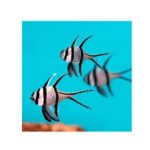
Traditional Chinese Medicine (TCM) is an ancient system of healing that has been practiced for thousands of years, drawing on a deep understanding of the body, mind, and spirit. In TCM, health is viewed as a delicate balance of energy, or Qi, within the body and its harmonious relationship with the environment. Feng Shui, the ancient Chinese practice of creating harmony and balance in one’s environment, shares many principles with TCM, particularly in terms of energy flow. Both systems emphasize the importance of balance to maintain health, vitality, and overall well-being.
This article explores the role of Traditional Chinese Medicine in maintaining health according to Feng Shui principles. We will delve into how various TCM remedies, such as herbal medicines, acupuncture, and dietary adjustments, can promote balance within the body and how these practices are connected to the energy flow of Qi. Additionally, we will discuss how the principles of Feng Shui can be integrated into daily life to enhance the effectiveness of TCM in fostering health and wellness.
1. Understanding the Connection Between TCM and Feng Shui
Both TCM and Feng Shui are based on the belief that energy, or Qi, flows through the body and the environment. In TCM, the balance of Qi within the body is essential for good health. Imbalances in Qi can lead to illness and disease, so the goal is to restore harmony within the body and mind by stimulating or calming the flow of Qi. Similarly, Feng Shui focuses on the flow of energy within a living space, suggesting that the arrangement of physical objects, the placement of furniture, and the use of colors and elements can either promote or disrupt the smooth flow of Qi.
By aligning TCM with Feng Shui principles, one can create a comprehensive approach to health that involves both internal harmony (within the body) and external harmony (within the environment). The synergy between these two practices offers a holistic method for maintaining health and enhancing overall well-being.
2. TCM Remedies for Health: Herbal Medicine
Herbal medicine is one of the most well-known aspects of TCM, with a rich history of using plant-based ingredients to treat a wide range of health conditions. These herbal remedies are carefully selected and combined to restore the balance of Qi, nourish the organs, and strengthen the body’s natural defenses. Many TCM herbs also work to improve circulation, boost immunity, and support detoxification, all of which are essential for maintaining good health.
The use of herbs in TCM can be linked to the principles of Feng Shui, as certain herbs are believed to harmonize the body’s energy, much like how Feng Shui aims to harmonize the energy in a living space. Here are some examples of TCM herbs that promote health and align with Feng Shui practices:
A. Ginseng (Panax ginseng)
Ginseng is one of the most revered herbs in TCM and is known for its ability to boost energy and improve overall vitality. It is considered an adaptogen, meaning it helps the body adapt to stress and promotes balance. In the context of Feng Shui, ginseng is often used to strengthen the body’s energy and promote longevity. Consuming ginseng tea or using it as part of an herbal formula can help restore balance to Qi and improve vitality.
B. Chrysanthemum (Chrysanthemum morifolium)
Chrysanthemum is a cooling herb commonly used in TCM to relieve symptoms associated with heat, such as headaches and inflammation. It is also believed to clear the liver and improve eyesight. In Feng Shui, the flower of the chrysanthemum is associated with the element of metal, which is linked to clarity and purity. Drinking chrysanthemum tea or using the flower in aromatherapy can help purify the body’s energy and improve mental clarity.
C. Licorice Root (Glycyrrhiza glabra)
Licorice root is often referred to as the “king of herbs” in TCM due to its ability to harmonize and balance other herbs in formulas. It is also used to tonify the digestive system and support the immune system. Licorice root aligns with Feng Shui principles by restoring balance and harmony to the body. It is often used to treat digestive disorders and improve overall vitality.
D. Goji Berries (Lycium barbarum)
Goji berries are known for their antioxidant properties and are used in TCM to improve energy, longevity, and immunity. They are considered a tonic for the liver and kidneys, which are essential organs in TCM. According to Feng Shui, goji berries are associated with the element of wood, which represents growth and vitality. Eating goji berries or drinking goji berry tea can help strengthen the body’s energy and promote longevity.
3. TCM Practices for Health: Acupuncture
Acupuncture is a central component of TCM, focusing on stimulating specific points on the body to promote the flow of Qi and restore balance. By inserting thin needles into these points, acupuncture helps to unblock stagnant energy, enhance circulation, and promote overall well-being.
In terms of Feng Shui, acupuncture can be seen as a way to improve the internal environment of the body, just as Feng Shui seeks to optimize the external environment. Both practices work with the flow of energy to bring about harmony and balance. Acupuncture can address various physical and emotional issues, such as pain, stress, and digestive problems, which are believed to result from imbalances in Qi.
Acupuncture sessions can be complemented by Feng Shui adjustments in the living environment. For example, if an individual is undergoing acupuncture to address stress, creating a calm, relaxing atmosphere in the home with soft lighting, soothing colors, and gentle sounds can enhance the treatment’s effectiveness. The energy in the home and body must align for optimal health.
4. TCM Dietary Adjustments for Health
In TCM, food is considered medicine. The diet is tailored to individual needs based on the person’s constitution, the balance of the elements, and the condition of their Qi. Foods are categorized by their energetic properties (hot, cold, warm, or cool) and their ability to nourish specific organs and systems.
Feng Shui also places great importance on food, not only for physical health but also for its energetic qualities. Just as the arrangement of objects in a home can influence the flow of energy, the food we consume can have a similar impact on our internal energy and health. Incorporating Feng Shui principles into one’s diet can help optimize the flow of Qi and promote wellness.
Here are some examples of dietary adjustments in TCM that align with Feng Shui:
A. Warm, Cooked Foods for Digestive Health
In TCM, warm, cooked foods are believed to be easier to digest and help strengthen the digestive system. Soups, stews, and porridges are often recommended, particularly in colder months, to nourish the body and support the spleen and stomach. This dietary principle also aligns with the Feng Shui concept of warmth and nourishment, particularly in the center of the home, where the kitchen is often considered the heart of the household.
B. Seasonal Eating
TCM emphasizes eating according to the seasons. For example, during the summer, cooling foods such as cucumbers, watermelon, and mint are recommended to balance the heat. In contrast, during winter, warming foods like ginger, garlic, and onions are favored to support the body’s energy. In Feng Shui, seasonal changes are seen as a natural flow of energy, and adjusting your diet accordingly helps to harmonize your internal energy with the external environment.
C. Eating Whole, Unprocessed Foods
In TCM, it is recommended to eat whole, unprocessed foods to maintain balance and health. Fresh vegetables, grains, and lean proteins are considered vital for nourishing the body and promoting longevity. This concept aligns with Feng Shui’s emphasis on purity and simplicity, which can enhance the flow of energy within the body.
5. The Role of TCM in Stress Management and Emotional Health
Stress and emotional imbalance are key factors that disrupt the flow of Qi and negatively affect health. TCM offers various remedies to help manage stress, anxiety, and emotional turmoil, all of which can influence the overall energy balance in the body.
Acupuncture, herbal medicine, and specific dietary adjustments can help to calm the mind, reduce stress, and restore emotional balance. In Feng Shui, creating a peaceful environment with calming colors, natural elements, and harmonious layouts is crucial for supporting emotional well-being.
By combining the practices of TCM and Feng Shui, individuals can create a holistic approach to stress management that addresses both the mind and the environment. This balanced approach ensures that Qi flows freely and promotes health and prosperity.
6. Integrating TCM with Feng Shui for Optimal Health
To maximize the benefits of both TCM and Feng Shui, it is essential to integrate the two practices into daily life. Here are a few practical steps for combining these ancient systems to enhance health and well-being:
- Balance your environment: Arrange your living space according to Feng Shui principles, ensuring that the flow of Qi is smooth and unobstructed. Incorporate elements of nature, such as plants, water features, and natural materials, to create a harmonious space.
- Adopt a balanced diet: Follow TCM dietary principles by eating foods that support your body’s constitution and seasonal needs. Incorporate foods that promote the health of the organs, such as warm, nourishing meals in the winter and cooling foods in the summer.
- Use TCM remedies: Incorporate TCM herbs and acupuncture into your routine to restore balance to your Qi. Use remedies that align with your health goals, such as boosting immunity, improving digestion, or managing stress.
- Practice mindfulness: Engage in meditation, Qi Gong, or Tai Chi to cultivate inner peace and strengthen the flow of energy within the body.
Conclusion
Traditional Chinese Medicine offers a wealth of knowledge and remedies for maintaining health, and when combined with
the principles of Feng Shui, it provides a powerful framework for achieving balance and well-being. By understanding the connection between these two practices and incorporating them into daily life, individuals can enhance their physical, emotional, and spiritual health. Whether through herbal medicine, acupuncture, dietary adjustments, or environmental changes, TCM and Feng Shui offer holistic solutions that harmonize the body’s energy and foster a healthy, prosperous life.









